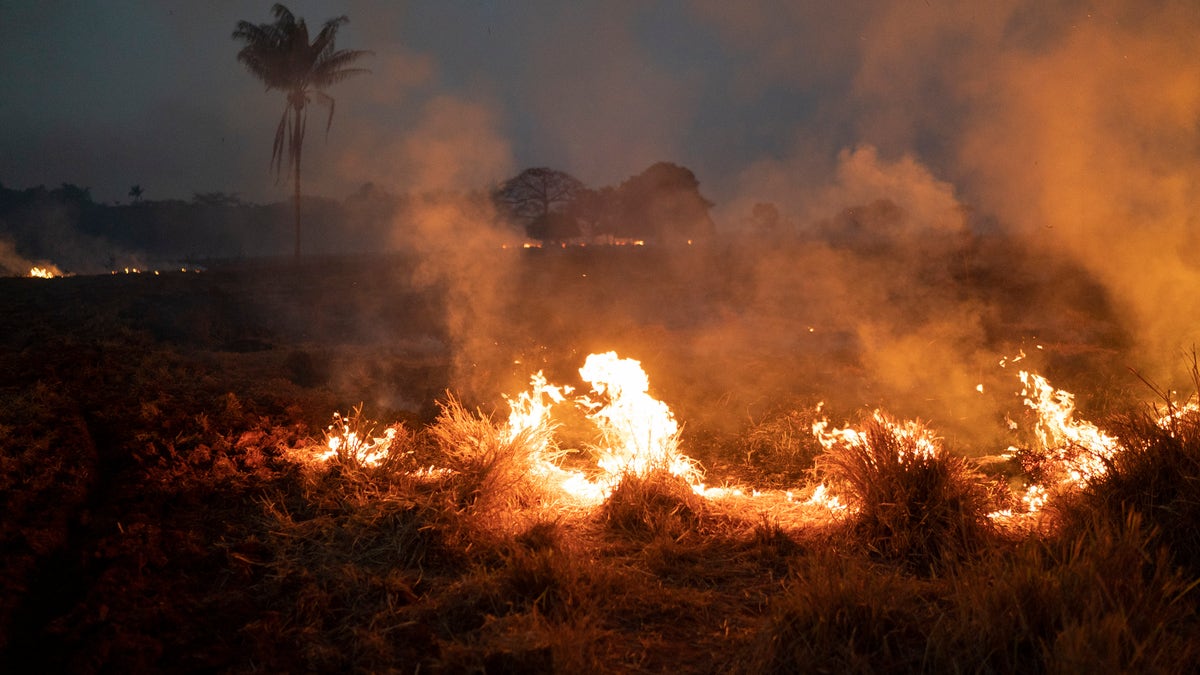Fox News Flash top headlines for August 26
Fox News Flash top headlines for August 26 are here. Check out what's clicking on Foxnews.com
The Amazon has been on fire for the last three weeks. And those blazes -- they're actually visible from space -- have resulted in widespread outrage and alarm among lawmakers, environmental activists and celebrities.
This year, the number of fires in Brazil is the highest on record since 2013 and is up by 85 percent from last year, according to several reports. The country's space research center has already detected more than 80,000 fires this year.
As for what caused the fires, which have led to any number of shocking images, that's been a subject of intense debate.
BREATHING POLLUTED AIR IS DEADLIER THAN PREVIOUSLY BELIEVED, STUDY CLAIMS

A fire burns a field on a farm in the Nova Santa Helena municipality, in the state of Mato Grosso, Brazil, on Friday. (AP Photo/Leo Correa)
Although the uniquely biodiverse rainforest is usually wet and humid, the area's dry season typically kicks off in July and August before tapering off by November. There are annual burns, with the land often cleared for farming or ranching.
Brazil's president, Jair Bolsonaro, has claimed without evidence that the fires have been started by nongovernmental organizations in retaliation for his administration's funding cuts.
However, many scientists and critics of Bolsonaro have said that his government's policy of encouraging deforestation has boosted the land clearance that helps fires rage, and has given people a license to burn the land.
On Friday, Bolsonaro said he would send 43,000 Brazilian troops to battle the blazes.
ENVIRONMENTAL GROUPS SUE TRUMP ADMINISTRATION FOR WEAKENING ENDANGERED SPECIES ACT
CLICK HERE FOR THE FOX NEWS APP
Although the blazes may not be the explicit result of climate change, environmental activists have said there is still a connection between a warming planet and more frequent extreme-weather events.
"In addition to increasing emissions, deforestation contributes directly to a change in rainfall patterns in the affected region, extending the length of the dry season, further affecting forests, biodiversity, agriculture and human health," Greenpeace said in a release.
Smoke from the blazes was covering half of Brazil last week, according to a climate scientist.




















